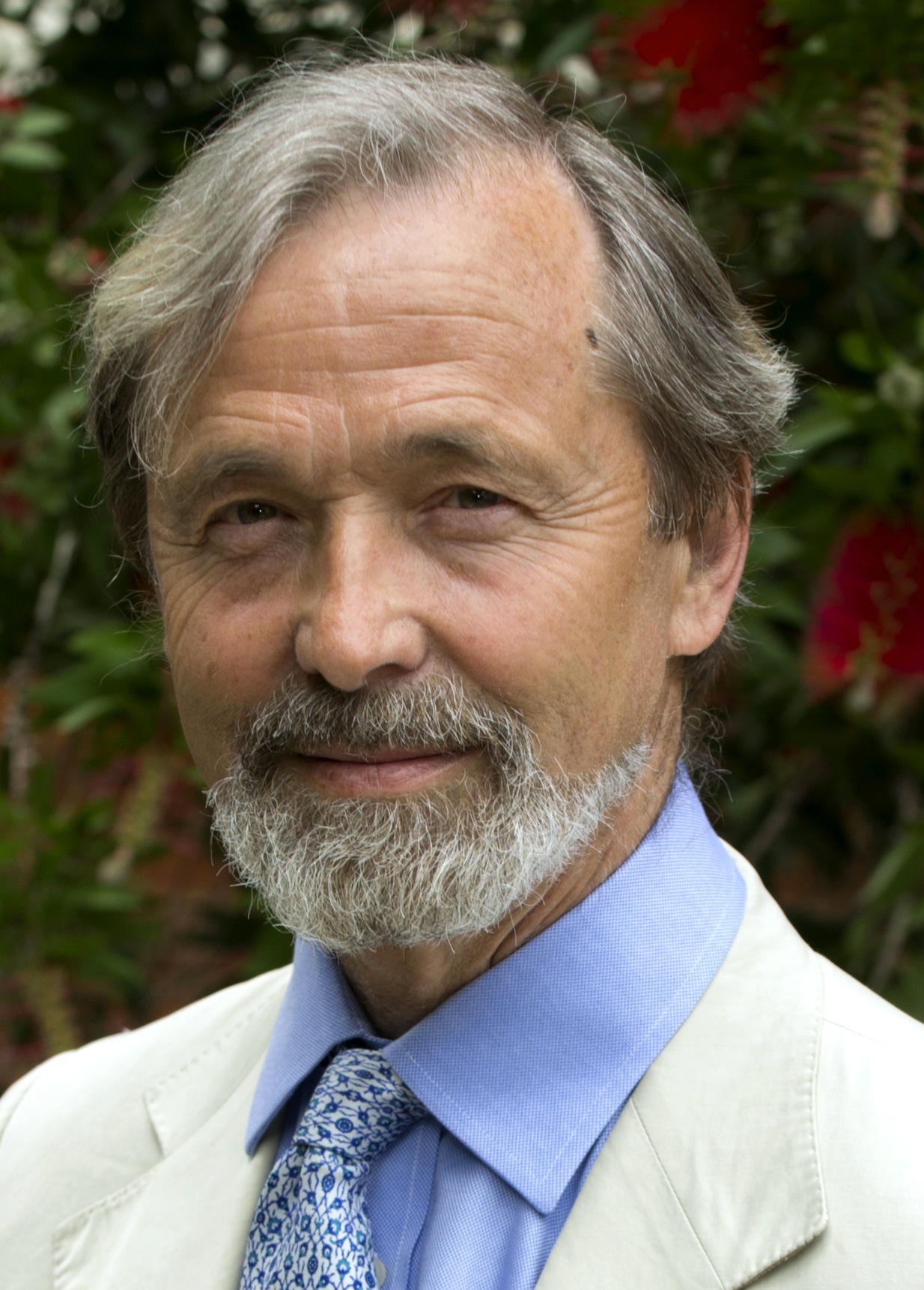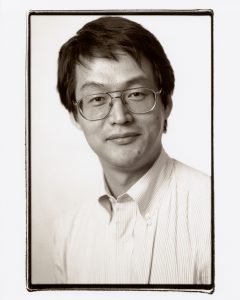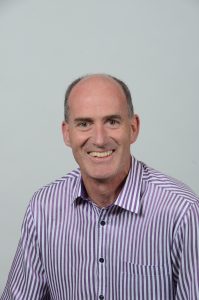President
 Barend MONS (Netherlands)
Barend MONS (Netherlands)
President 2018-2023
Barend Mons is a molecular biologist by training (PhD Leiden University 1986). He spent over 15 years in malaria research in close collaboration with endemic countries. After that he gained experience in computer-assisted knowledge discovery, which is still his research focus. He spent time with the European Commission as a Seconded National Expert with the INCO-DC pogramme (1993-1996) and with the Netherlands Organisation for Scientific Research (NWO 1966-1999). Barend also co-founded several spin off companies. In 2000 he founded the Biosemantics group in Rotterdam and later also in Leiden. Currently, Barend is Professor in Biosemantics at the Human Genetics department of Leiden University Medical Center. He was also the first Head of Node for ELIXIR-NL at the Dutch Techcentre for Life Sciences (until 2015), is Integrator Life Sciences at the Netherlands eScience Center, and board member of the Leiden Centre of Data Science. In 2014, Barend initiated the FAIR data initiative and in 2015, he was appointed Chair of the European Commission’s High Level Expert Group for the “European Open Science Cloud”, from which he retired by the end of 2016. Barend is and ambassador of GO FAIR and co-founder of the GO FAIR initiative, an initiative to kick start developments towards the Internet of FAIR data and services, which will also contribute to the implementation of components of the European Open Science Cloud.
Recently, Barend has been elected President of the Executive Committee of CODATA where he will work closely with the Executive director and the rest of the team to develop CODATA in the scope of the International Council of Science.
Past-President
Geoffrey BOULTON (UK)
President 2014-2018
Professor Geoffrey Boulton (UK) is Regius Professor of Geology Emeritus at the University of Edinburgh, and former Vice Principal of the University. He is a Fellow of the Royal Society and of the Royal Society of Edinburgh (Scotland’s national academy). He is a member of the Council of the Royal Society, chairs its Science Policy Centre, was principal author of its influential report Science as an Open Enterprise. Building on the recommendations of this report, he was responsible for creating the UK Research Data Forum and is a member of the UK Government’s Research Transparency Board. He is President of the Scottish Association for Marine Science and until recently was a member of the UK Prime Minister’s Council for Science and Technology, the UK’s top-level science policy body. He has been a member of the Royal Commission on Environmental Pollution and the Natural Environment Research Council, chairing its Earth Science and Technology Board and its Polar Science Board. He has been the UK representative to the International Union of Geological Sciences (IUGS) and to the International Union for Quaternary Science (INQUA).
His research is in the fields of environmental geology and glaciology, frequently involving large and diverse data volumes, and he currently leads a major project on the Antarctic Ice Sheet. National and international awards for his science include the Kirk Bryan Award of the Geological Society of America, the Seligman Crystal of the International Glaciological Society, the Lyell Medal of the Geological Society, the Royal Medal of the Royal Geographical Society, the Croll Medal of the Quaternary Research Association, and honorary doctorates from the Universities of Heidelberg, Chalmers University, Birmingham and Keele.
Professional Details: School of GeoSciences (University of Edinburgh); ResearchGate.
Vice-Presidents
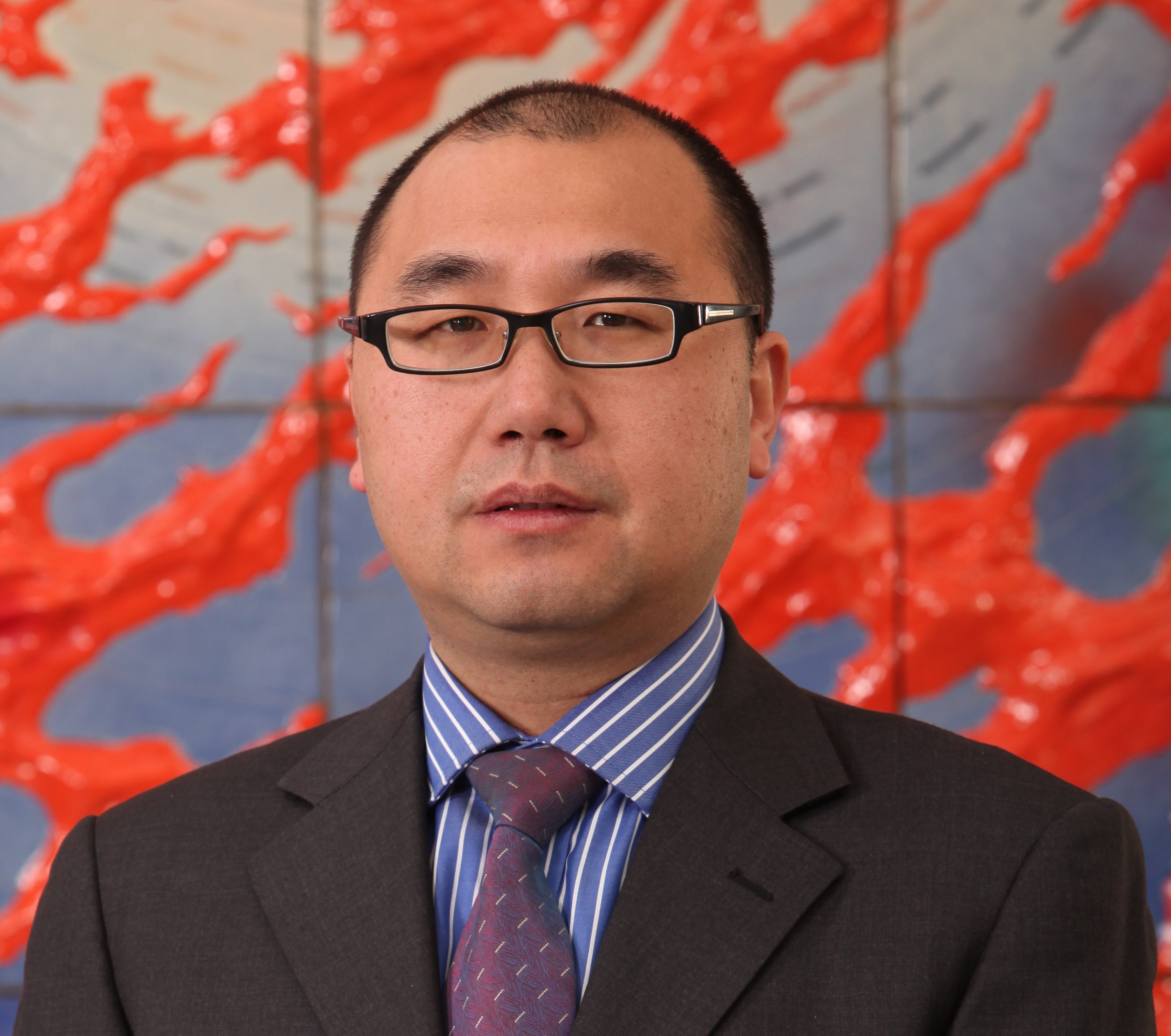 Jianhui LI (China)
Jianhui LI (China)
Vice President 2018-2023
Dr. LI Jianhui is professor and director of scientific data at the Computer Network information Center (CNIC) of the Chinese Academy of Sciences (CAS). He is also the Secretary-General of the Chinese National Committee for CODATA.
Dr. LI was born in 1973, and obtained his Ph.D. degree from the Institute of Computing Technology of CAS in 2007. He has mainly engaged in the research of scientific data curation and sharing, data-intensive computing and applications, big data analysis and cloud service. For CAS, he leads and promotes the development of scientific databases sharing and he designed and led the development of scientific data infrastructure and its application environment. He was also the Co-PI of the National Data Sharing Network for Basic Research Project, which coordinated scientific research data sharing among universities, institutions and other research organizations. He is leading the design and further development of the Scientific Data Cloud of CAS (http://www.csdb.cn) for data sharing, big data analysis and large scale data-Intensive scientific research, and leading a group to design and develop a research data repository and data journal for scientific data publication in China. Dr. LI has published more than 50 papers and applied for 8 patents and 1 national standard.
He has also organized a series of activities to help promoting and improving scientific and technical data management and use, and increasing the impact of CODATA in China, including the International CODATA Conference, Task Groups, Training Workshops, etc.
As an Executive Committee member, he will link international CODATA and CODATA-CHINA, increasing CODATA visibility in China and promote CODATA as the natural home for Chinese data scientists. He will help to enhance the capacity building in developing countries, and push forward scientific data citation and publication practices. I this way, he willl help CODATA carry out its missions, objectives and key initiatives of its Strategic Plan 2013-2018.
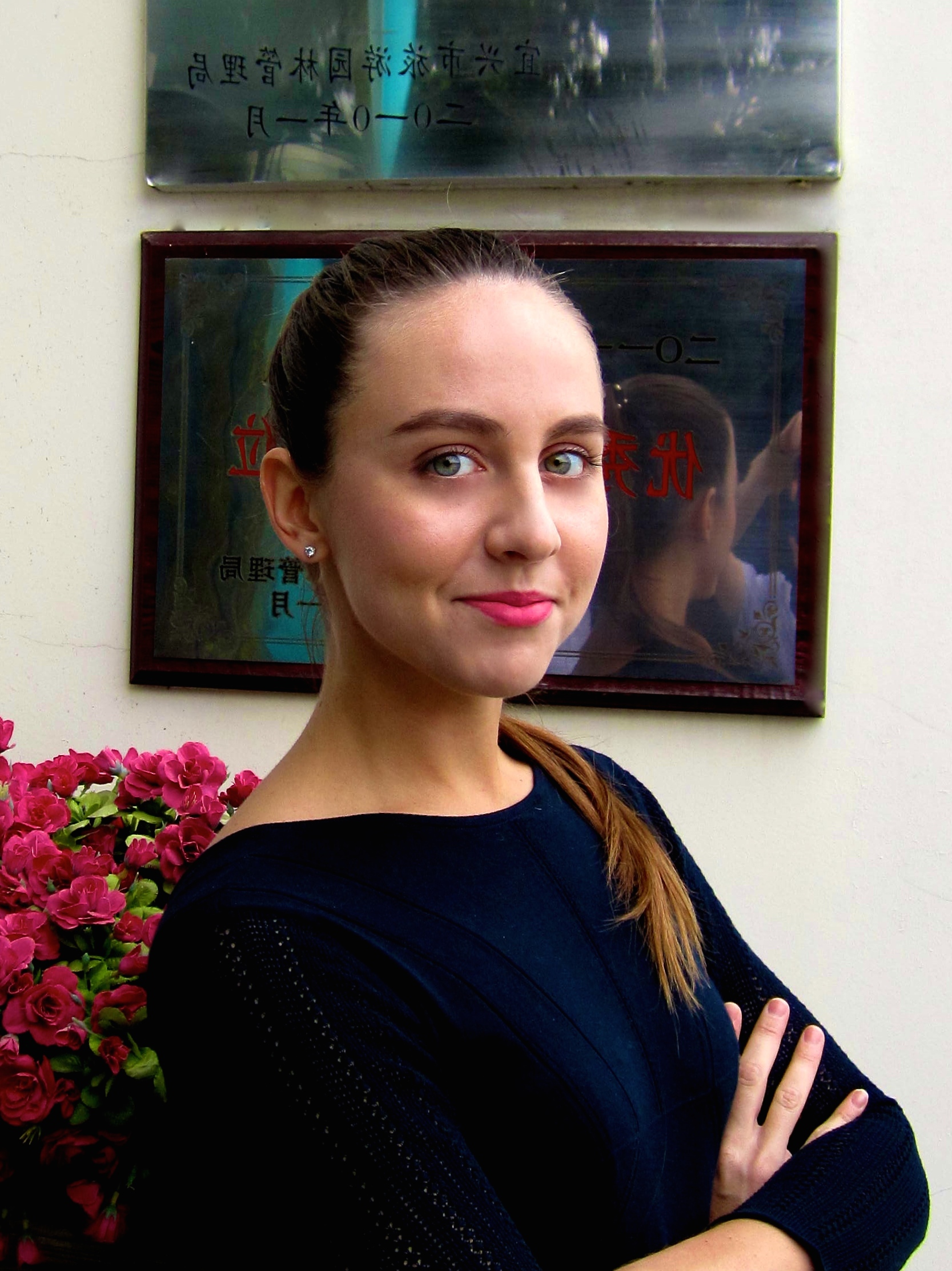 Alena RYBKINA (Russia)
Alena RYBKINA (Russia)
Vice President 2018-2023
Alena Rybkina is chief of the Innovation Technologies Sector of the Geophysical Center of the Russian Academy of Sciences (GC RAS). She is an internationally recognized specialist in implementation of modern information and visualization technologies in the scientific research and industrial domain. Important goals of her activity are data technological studies and development of spherical projection systems aimed at efficient analysis, demonstration and popularization in data research and management. Alena is actively involved in the operations of the CODATA Task Group “Earth and Space Science Data Interoperability”. She co-authored the “Atlas of the Earth’s Magnetic Field”, which was one of the outstanding TG achievements in 2013. She is experienced in the organization of international and national events devoted to promotion of data science in Russia and other countries. In particular she was the principal organizer of the conferences “Electronic Geophysical Year: State of the Art and Results” in 2009, Pereslavl-Zalessky, “Artificial Intelligence in the Earth’s Magnetic Field Study. INTERMAGNET Russian Segment” in 2011, Uglich and “Geophysical Observatories, Multifunctional GIS and Data Mining” in 2013, Kaluga. She takes part in numerous international projects, including those developed by the International Institution for Applied System Analysis (IIASA, Laxemburg, Austria). Alena is geologist currently working on the paleoenvironmental reconstructions and the Earth’s magnetic field studies. She took part in geological expeditions in Russia, Ukraine, France and Italy for collecting paleomagnetic data and providing correlations between changes in magnetic data and global astronomical cycles. As a member of the CODATA Executive Committee she focuses on the organization and structuring the CODATA research projects and bring her experience in the geoscience data management. Special attention will be paid to the promotion of CODATA activities among data and research community to involve new members as well as young scientists.
Professional Details: LinkedIn
Secretary General
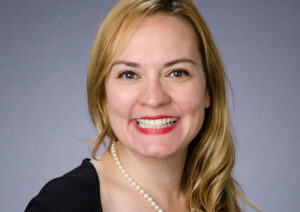 Christine KIRKPATRICK
Christine KIRKPATRICK
Secretary General 2021-2025
Christine Kirkpatrick’s home institution is at the San Diego Supercomputer Center, UC San Diego where she leads the Research Data Services division that includes infrastructure (cloud, networking, storage), data center/colocation facility, and a data initiatives group. She has considerable experience leading research infrastructure projects (at scale) and supportive data services including a leadership role on the Schmidt Futures Foundation and NSF-funded Open Storage Network and as head of the Data Core for the National Institutes of Health-funded Metabolomics Workbench, a national data repository for metabolomics studies. Kirkpatrick has held numerous roles in the Data Together institutions, including as a member of the Technical Advisory Board for the Research Data Alliance (2018-2021); she co-Chairs the FAIR Digital Object Forum, and serves as an ex officio member on the National Academies’ US National Committee for CODATA. Kirkpatrick was the founding Executive Director of the US National Data Service. In addition to being PI of the EarthCube Office (ECO), Kirkpatrick founded the US GO FAIR Office, is PI of the West Big Data Innovation Hub, and Co-PI on a new NSF Accelnet award: Designing a Water, Data, and Systems Science Network of Networks to Catalyze Transboundary Groundwater Resiliency Research. She serves on the advisory boards for the European Open Science Cloud-Nordic (EOSC-Nordic) and the Helmholtz Federated IT Services (HIFIS). Kirkpatrick is a member of the Stakeholder Alignment Collaborative, a research group whose focus includes organizational models that support community-driven (data) consortia. Kirkpatrick’s personal research is in Computer Science where she focuses on the relationship of FAIR data and machine learning processing.
Treasurer
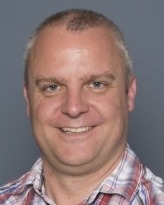 Steven McEachern
Steven McEachern
Treasurer 2021-2025
Executive Committee Members 2021-2023
Toshihiro ASHINO (Japan)
Executive Committee Member 2018-2023
Toshihiro Ashino is a professor of Toyo University. He is a member of Science Counsil of Japan (SCJ) and a secretary of International Data Committee and the chairperson of CODATA Sub-Committee of SCJ from 2018.
He is continuing research into data and knowledge representation for materials science and engineering. The article of materials ontology in CODATA Data Science Journal 2010 is regarded as an advanced research in current materials informatics area. He had co-chaired CODATA TG “Exchangeable Materials Data Representation” from 2006 to 2012, and from 2014, participating a Japanese national project, “Materials Integration” and playing an important role to develop materials data and knowledge representation for integrate heterogeneous information resources of materials science and engineering in collaboration with National Institute of Materials Science and The University of Tokyo.
He is also working for standardization of materials data representation, participating a series of CEN workshops, workshop on ‘Economics and Logistics of Standards compliant Schemas and ontologies for Interoperability – Engineering Materials Data’ (WS/ELSSI-EMD, 2009-2010), ‘Standards for Electronic Reporting in the Engineering Sector’ (WS/SERES, 2012-2014), ‘Fatigue Testing Data’ (WS/FATEDA, 2016-2017), n ‘Mechanical Testing Data’ (WS/METEDA, 2017-2018) and ‘Nanoindentation Testing Data’ (WS/NATEDA, 2018-2020).
Also, Professor Ashino is working not only in materials science and engineering field, participating JOSS (Japan Open Science Summit) organization committee and RDUF (Research Data Utilization Forum) program committee, working to promote open data and open science activities in Japan.
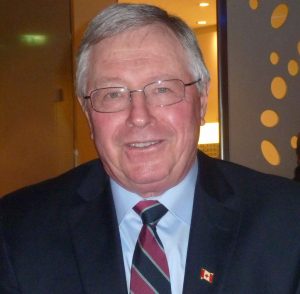 Ernie BOYKO (Canada)
Ernie BOYKO (Canada)
Executive Committee Member 2018-2023
Ernie Boyko is an agricultural economist with extensive experience in data development, data dissemination and research data management.
His wide experience at Canada’s national statistics agency, Statistics Canada, involved working at senior levels in a variety of areas including: agriculture statistics, corporate planning, electronic dissemination, census operations and library and information services. As an advocate for data access, his crowning achievement at Statistics Canada was the creation of the Data Liberation Initiative with Wendy Watkins from Carleton University. This program allowed affordable access to all public microdata and aggregate files for the first time to post-secondary institutions. It has recently celebrated its 25th anniversary with 79 institutional members. DLI has been cited internationally as a model program for statistical institutions.
Ernie was involved in several assignments with the World Bank and OECD’s PARIS21 projects. This involved work in several African and Asian counties in data development for agriculture statistics, dissemination and data management policies for statistical agencies. He was able to put his Statistics Canada and international experience to use while spending a decade as an Adjunct Data Librarian at Carleton University where he taught the basics of research data management to faculty and graduate student researchers.
He is a past president of the International Association for Social Science Information Services and Technology (IASSIST) an organization he has been part of for nearly 30 years. This has given him exposure to the challenges of social science data services. It was under this umbrella that he was part of a working group that developed a metadata standard, the Data Documentation Initiative (DDI). DDI is now widely used as a standard for documenting research data. In 2018, IASSIST presented Ernie with a lifetime achievement award for his work.
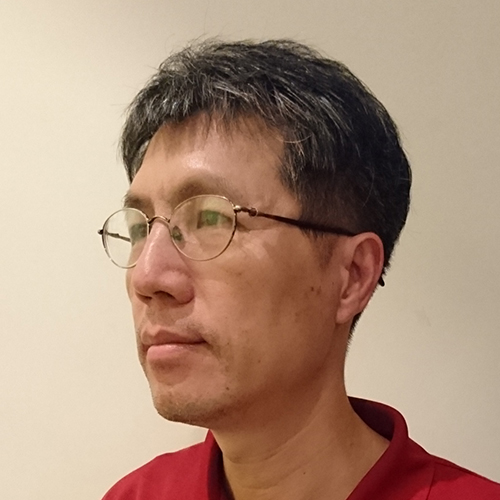 Tyng-Ruey CHUANG (The Academy of Sciences located in Taipei)
Tyng-Ruey CHUANG (The Academy of Sciences located in Taipei)
Executive Committee Member 2018-2023
Tyng-Ruey Chuang‘s research interest includes functional programming, geospatial informatics, and topics in citizen science and data collaboration. He is an associate research fellow at the Institute of Information Science, Academia Sinica, Taiwan, with joint appointments both at the Research Center for Information Technology Innovation and at the Research Center for Humanities and Social Sciences. He was a fellow at the Berkman Center for Internet and Society (2011 — 2012), supported in part by a Fulbright senior research grant and by the National Science Council of Taiwan. He was the project lead of Creative Commons Taiwan since its start in 2003 until its transition to a community project in 2018. He served for several times as a board member at both the Taiwan Association of Human Rights and at the Software Liberty Association of Taiwan.
He was trained as a computer scientist (PhD, NYU 1993) and has been working with ecologists, historians, and legal scholars to make better use of research data. He collaborated with the Taiwan Endemic Species Research Institute on a communal data workflow for the Taiwan Roadkill Observation Network. He worked with memory institutions on setting up the Sunflower Movement Archive. He co-authored a chapter “Governance of Communal Data Sharing” in the book Good Data published in January 2019 by the Institute of Network Cultures, Amsterdam.
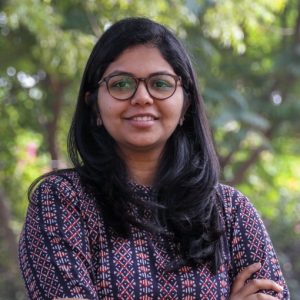 Shaily GANDHI (India)
Shaily GANDHI (India)
Executive Committee Member ex officio as co-lead of the CODATA Connect Early Career and Alumni initiative.
Shaily Gandhi is a Manager IT and Geospatial Solutions at CEPT Research and Development Foundation. She is an active member of CODATA and initial lead for CODATA Connect – Early Career and Alumni Network. She has completed her Ph.D. degree from CEPT University, India in 2018. Her Ph.D. Major title was on “Critical success and failure factors for Pharmacutical Drugs Monitoring and Management using Geospatial Technology” and Minor study was on: “Spatio – Temporal Analysis of Urban Settlement – A case study of Rajkot”. She has a Master’s degree in Geoinformatics. She is been working at multiple organizations as a faculty and has been experimenting innovative teaching methods since last 8 years.
She is a Geoinformatics, Data Wrangling and Visualization expert. She is a certified Data Carpentry instructor. She has been one of the curator and instructor for the Urban Data Science Summer School which was developed as a successful collaboration which took place at CODATA-RDA Summer School in 2017. She is an alumnus of the CODATA-RDA Research Data Science Summer School at Trieste. She has participated in multiple CODATA Activities.
She is keen to explore the implementation of GIS and data science in the domain of Urban Analytics. She has been involved in organizing a series of webinar under the Smart and Resilient Cities and Research Data Skill webinar series, along with competitions for young researchers. These activities are used to promote and improve scientific and technical research data management skills amongst the early career and alumni network.
As an Executive Committee co-opted member, she will link international CODATA and CODATA Connect initiative, increasing CODATA visibility in early career researchers. She will help to enhance awareness and conduct capacity building activities in developing countries.
Richard HARTSHORN (IUPAC)
Executive Committee Member 2018-2023
Professor Hartshorn is currently a Professor of Chemistry in the School of Physical and Chemical Sciences of the University of Canterbury, Christchurch, New Zealand. He was elected Secretary General for the International Union of Pure and Applied Chemistry (IUPAC, www.iupac.org) for 2016-2019 by the IUPAC Council at their 48th General Assembly in Busan, Korea in August 2015.
Professor Richard Hartshorn holds a BSc degree with first class honours from the University of Canterbury and a PhD from The Australian National University. Prior to his election as IUPAC Secretary General, he served as an Elected Member of the IUPAC Bureau (2014-2015), President of the IUPAC Division of Chemical Nomenclature and Structure Representation (2010-2013), and was a member of the IUPAC Committee on Chemistry Education (2006 – present). He is a Fellow of the Royal Australian Chemical Institute and a Fellow of the New Zealand Institute of Chemistry.
His research group works in the area of applying the coordination chemistry of dinuclear and heterodinuclear systems to problems in biological chemistry, and he has a long-standing interest in nomenclature and new ways of systematically naming and representing chemical compounds. The interest in nomenclature led to involvement in and promotion of cheminformatics and data initiatives within IUPAC, and to membership of the International Chemical Identifier (InChI) Trust Board. He has been heavily involved in school and community education, through establishment of a science outreach program at UC, and is the Chair of Trust Board for the National Science-Technology Roadshow (www.roadshow.org), and for many years was a Board member of Science Alive! (www.sciencealive.co.nz/).
Professor Hartshorn devotes much of his spare time to coaching cricket, and often has a sore arm and shoulder from throwing cricket balls at his sons. He was a New Zealand U19 cricket representative and is a qualified cricket coach.
 Ajit KEMBHAVI
Ajit KEMBHAVI
Executive Committee Member 2021-2023
Ajit Kembhavi is an astronomer. He is Professor Emeritus and former Raja Ramanna Fellow at the Inter-University Centre for Astronomy and Astrophysics (IUCAA), Pune. He was Director there until August 2015. He is one of the founder members of IUCAA and played a major role in setting it up and developing it into a world-class institute. He did his Ph. D. from TIFR, Mumbai and was a post-doctoral fellow at the Institute of Astronomy, of the University of Cambridge.
Kembhavi works on galaxies, quasars and other extragalactic objects, various areas of high energy astrophysics, X-ray and radio pulsars, and the application of AI to astronomy and biology. He has published a large number of research papers and several books in English and Marathi.
Kembhavi is involved in many national and international collaborations and is one of the key persons responsible for India joining the Thirty Metre Telescope (TMT) project as a partner and taking up the LIGO India project. He is now on the Apex Committees of these projects and a member of the LIGO USA Oversight Committee.
In the field of data driven science, Kembhavi has led the Virtual Observatory-India project for fifteen years, which has made important contributions to data management, analysis, visualisation and the development of tools for statistical analysis. The project was carried out in close collaboration with Anand Deshpande Persistent Systems. He headed a Big Data project supported by the National Knowledge Network (NKN).
Kembhavi is the Principal Investigator of the recently launched Pune Knowledge Cluster. This is funded by the Principal Scientific Advisor to the Government of India and brings together the academia, R&D institutes and the industry in Pune to carry out capacity building programmes and projects for the betterment of the city in the verticals of environment, health, electric mobility and Big Data and AI.
Kembhavi has been a member of the Space Commission of the Government of India and is presently a member of the ISRO’s Apex Science Board. He was Vice-President of the International Astronomical Union and former President, Astronomical Society of India, Chair of the International Virtual Observatory Alliance, Chair of the Scientific Council of the Astronomical Data Centre at Strasbourg and Chair of the Council of the Indian Institute of Astrophysics. He is currently Chair of the Indian National CODATA Committee. He is a Fellow of the Indian Academy of Sciences and the National Academy of Sciences, India.
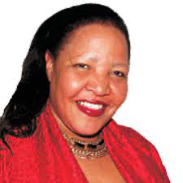 Audrey MASIZANA (Botswana)
Audrey MASIZANA (Botswana)
Executive Committee Member 2021-2023
Audrey Masizana is an immediate Head of Department of Computer Science at the University of Botswana. She has over the years served in various University’s transformational Committees that proposed innovative solutions around ELearning, Digital Scholarship and Technology Adoption. . She holds a PhD in Computer Science from UMIST (2004) UK, MSc (Computer Science) (1998), Post Graduate Diploma in Advanced Computing (1997) from Oxford Brookes University UK and BSc (Hon) Mathematics Modelling and Computing (1994) from Kingston University UK. Her professional certifications include Data Science, Design Thinking and ERP Education.
Audrey is passionate in interdisciplinary post graduate teaching and research around Scientific Application of Data for Intelligent Decision Making, for which she also conducts external examining for other universities. She is a seasoned publisher in conference and journal proceedings across the world for which she also serves in some of the editorial boards. Such include several publications as academic products of the Digital Inclusion project awarded under the Microsoft Digital Inclusion Program 2006. She has made exceptional contributions to the promotion of science and technology by providing leadership in the establishment of fostered local and regional collaborative projects around Hi Performance Computing (HPC) & Data Science Research – covering the development and sharing of the compute and data research infrastructure, eHealth Research which engages Health Informatics, and Intelligent Systems Research which explores applications of Artificial Intelligence to solve relevant problems such as Diamond Sorting and Recovery.
She has over the years served at national bodies such as the National Cyber Security Strategy Development Committee (2016) and its new Implementation Committee (2021). She is a strong advocate of the adoption of Open Data Open Science Policies and Instruments and served as a Deputy Chair of the National Committee on Open Data Open Science established in 2017 which has inspired developments such as establishment of National Research and Education Network (NREN). She is very active in professional societies nationally, being a Fellow of Botswana Academy of Sciences (FBAS) and the current Chair of Computer Society of Botswana where she forged strategic collaborations with societies of similar mandates regionally and internationally such as the International Federation of Information Processing (IFIP).
She has over the years gained enormous experience in spear heading academic networking platforms amongst chairing Organizing Committees of international conferences such as:
- Visualization Technology Africa Conference 2019, Gaborone Botswana
- 2nd International Data Week in 2018, Gaborone Botswana
- International Association of Science and Technology Africa (IASTED Africa Series) Conference in 2014 and 2016, Gaborone Botswana
- The 1st, 3rd International Conference on Cyber Security and Information Systems ICICIS, 2016 and 2018, Gaborone Botswana
Of relevance to CODATA mandate, she has served as a member of the African Technical Advisory Committee which formed part of the first committee that established the African Open Science Platform in 2017. The initiative provided her with an opportunity to contribute to the development of the Africa Open Science Framework designed for continental adoption. She is also one of the innovators of the VizAfrica Network which was established as a spinoff project of the VizAfrica Conference in 2019 which was delivered in collaboration with CODATA. She is passionate on this initiative which has been designed to be a networked body of knowledge and expertise that nurtures continual conversations on issues around Data Visualization theory, policy, technology and practice in Africa. She is also currently instrumental in promotion and maintaining of CODATA collaborative engagements in Botswana and very passionate to continue playing this role for the consortia within the African landscape, thus contributing towards the expansion and strengthening of the organization’s engagements beyond.
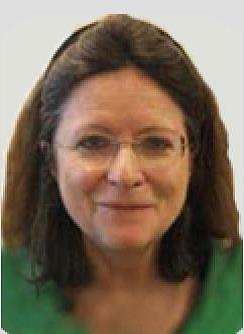 Virginia MURRAY (UK)
Virginia MURRAY (UK)
Executive Committee Member 2018-2023
Professor Virginia Murray is a medical doctor committed to improving data access and transparency for effective reporting. She was appointed as Head of Global Disaster Risk Reduction (GDRR) for Public Health England in April 2014 having worked in the UK health system for over 30 years. Data is critical for the implementation of the recent synchronous adoption of the 2015 landmark UN agreements of the Sendai Framework for Disaster Risk Reduction 2015 – 2030 the Sustainable Development Goals (SDGs), and the COP21’s Paris Climate Conference. It also imperative for the use of the WHO’s International Health Regulations 2005 and has created a rare but significant opportunity to build coherence across different but overlapping policy areas. In her GDRR role, she has engaged with many science and technology partners in supporting the UNISDR STAG/ ISC/IAP partnership to implement the Sendai Framework for Disaster Risk Reduction 2015-2030 where it calls for:
“Disaster risk reduction requires a multi-hazard approach and inclusive risk-informed decision-making based on the open exchange and dissemination of disaggregated data, including by sex, age and disability, as well as on easily accessible, up-to-date, comprehensible, science-based, non-sensitive risk information, complemented by traditional knowledge;” [paragraph 19g]
Virginia is also a member of the Integrated Research on Disaster Risk (IRDR) scientific committee (2016 onwards) where she co-chairs the IRDR Data project, has active collaboration with WHO Thematic Platform for Health Emergency and Disaster Risk Management(2009 onwards) and was previously a member and vice-chair of the UN International Strategy for Disaster Reduction (ISDR) Scientific and Technical Advisory Group (STAG), 2008-2017. Since 2015, she has been a member of the UN Sustainable Development Solutions Network for Data Thematic Research Network on Data and Statistics (TReNDS) and contributed to the 2017 report on Counting on the World. She has been actively engaged in many UN meetings and platforms including the 2018 UN World Data Forum. She has published widely and recently she was first author of a chapter on heat and extreme events in the UN Environment Adaptation Gap Analysis report 2018.
 Mark PARSONS (USA)
Mark PARSONS (USA)
Executive Committee Member ex officio as Editor-in-Chief of the Data Science Journal.
Mark A. Parsons is a Senior Research Scientist at the Tetherless World Constellation at Rensselaer Polytechnic Institute. As a geographer, his research interests include the role of mediation and social interaction in the success, development, and extension of data sharing networks. Mark was the first Secretary General of the Research Data Alliance (RDA) and stepped down in July 2017. He focusses on stewarding research data and making them more accessible and useful across different ways of knowing. He has lead major data stewardship efforts for more than 20 years, and received the American Geophysical Union Charles S. Falkenberg Award as an advocate of robust data stewardship as a vital component of Earth system science and as an important profession in its own right. Prior to joining Rensselaer, Mark was a Senior Associate Scientist and the Lead Project Manager at the National Snow and Ice Data Center (NSIDC). While at NSIDC, he defined and implemented their overall data management process and led the data management effort for the ICSU/WMO International Polar Year 2007-2008. He is active in several international committees and boards.
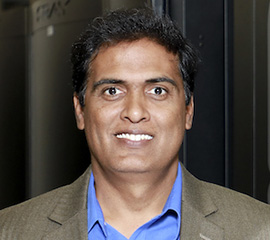 Giri PRAKASH
Giri PRAKASH
Executive Committee Member 2021-2023
Giri Prakash serves as the Section Head for Earth System Informatics and Data Discovery Section at the Oak Ridge National Laboratory. He is responsible for overseeing data center groups that manages WDS member data centers such as Atmospheric Radiation Measurement Facility (ARM) Data Center and ORNL DAAC. As the director of Atmospheric Radiation Measurement Facility (ARM) Data Center, he is responsible for the leadership and management of the ARM Data Center. With a primary focus on operational activities and engineering necessary to sustain and advance excellence in the data management field. Specifically, the ARM Data Center Archive currently holds over 3 petabytes of data for 11,000 diverse observational data products. Giri leads the development and execution of multi-year plans that adapt the next-generation computing architecture to the increasing demands of data volume, rates, complexity, and the challenges of high-resolution modeling.
Giri has over 19 years of experience in scientific data management, discovery, metadata and data interoperability, FAIR (findable, accessible, interoperable, and reusable) data principles, data citation, computing-as-a-service, web services, and visualization. His latest research interest includes enabling open science by adapting AI/ML capabilities in scientific data center operations. He currently serves a four-year term on the U.S. National Committee for CODATA, or USNC/CODATA. He actively participates in various international data sharing and interoperability working groups, data management workshops, and conferences.
He received a master of science degree in environmental sciences from Memorial University in St. John’s, Newfoundland, Canada in 2000. He also holds a diploma in object oriented software technology from the University of Calgary in Canada. In addition, he holds a master of science degree in soil science and a bachelor’s degree in agriculture from Tamil Nadu Agricultural University in Coimbatore, India.
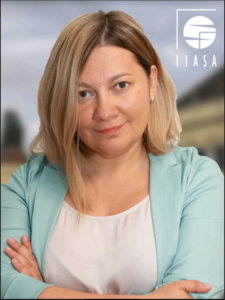 Elena ROVENSKAYA
Elena ROVENSKAYA
Executive Committee Member 2021-2023
Elena Rovenskaya is the Advancing Systems Analysis (ASA) Program Director at the International Institute for Applied Systems Analysis (IIASA), Austria. She is also a research scholar at the Optimal Control Department of the Faculty of Computational Mathematics and Cybernetics, Lomonosov Moscow State University, Russia. Her scientific interests lie in the fields of optimization, decision science, and mathematical modeling of complex socio-environmental systems.
Dr. Rovenskaya graduated in 2003 from the Faculty of Physics, Lomonosov Moscow State University, Russia. She received her PhD in 2006 at the Faculty of Computational Mathematics and Cybernetics, Lomonosov Moscow State University, Russia. In different capacities Dr. Rovenskaya has been working at IIASA since 2006. She was appointed a newly created ASA Program Director from January 2021. Currently, this Program includes 85+ scientists and aims to identify, develop, and deploy new systems-analytical methods, tools, and data to help address the most pressing global sustainability challenges with greater agility.
As a member of the CODATA Executive Committee, Dr. Rovenskaya aims to promote a higher linkage between data and modelling that informs sustainability transformations at global, national, and local scales. Among other challenges, this includes the challenge to unlock the potential of data held by the private sector for research in the interests of the society.
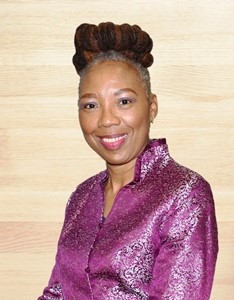 Daisy SELEMATSELA (South Africa)
Daisy SELEMATSELA (South Africa)
Executive Committee Member 2018-2023
Daisy Selematsela is the Executive Director of the University of South Africa (UNISA) Library and Information Services. She was the Acting Vice Principal: Research Postgraduate Studies, Innovation and Commercialisation at the University of South Africa until 31 May 2018. She previously served the National System of Innovation as Executive Director: Knowledge Management Corporate at the National Research Foundation of South Africa (NRF). She is Professor of Practice of Information and Knowledge Management of the University of Johannesburg.
She has 26 years’ experience in Higher Education sector and within the National System of Innovation (NSI). She serves as mentor for both emerging researchers and students and an external examiner for undergraduate and postgraduate students in Library, Information Science and Knowledge Management.
Daisy has served CODATA since September 2006 at various levels through the activities of the South African National Committee for CODATA and the then ICSU Regional Office for Africa activities including hosting workshops and website content for the Task Group activities. Have been instrumental in championing the research data management processes and Open Access Mandate within the National System of Innovation in South Africa and promoted CODATA Task Group agenda at different forums in Sub-Saharan Africa. Her involvement includes being Co-Chair of the Sub-group of CODATA-WDS of PASTD, an Executive member of International Council for Science Union (ICSU SCID) ad Hoc Committee on Information and Data, Chair of International Council for Science: Committee on Data for Science & Technology (ICSU: CODATA) Task Group on Data Sources for Sustainable Development in SADC. Executive member of (ICSU EDC Panel) International Science Union World Data Centre Panel; Member of CODATA Task Group on Preservation of and Access to Scientific and Technical Data in/for/with Developing Countries, and Co-chairs of CODATA – WDS joint subgroup.
A former Editorial Board member of Committee on Data for Science and Technology (CODATA) Data Science Journal (DSJ) and Editorial Board Member: Global Change Research Data Publishing and Repository.
She serves on the national boards and council of the National Library of South Africa; National Archives of South Africa; National Council of Library and Information Services and a member of Board of Directors of international bodies as the Confederation of Open Access Repositories (COAR) and ORCID.
Daisy has co-ordinated workshops, chaired conference sessions and made numerous local and international invited keynote presentations on areas of her research interest, in areas of Information Literacy; Open Scholarship, Open Science and Open Data; Digitisation and Preservation; Repositories; Records and Document Management; Information and Knowledge Management; and Leadership, Transformation and Change Management. She has also published articles in a number of popular and accredited journals; a book chapter; and several contributions to UNESCO and WHO reports. An editorial board member of the South African Journal of Library and Information Science and a reviewer of several programs.
She holds a PhD in Information Science from the University of Johannesburg (South Africa) ; a Fellow of the Higher Education Resource Service for Women in Higher Education (HERS) South Africa and Bryn Mawr College in Philadelphia, USA. Awarded the Knowledge Management Award in 2016 by the World Education Congress.

